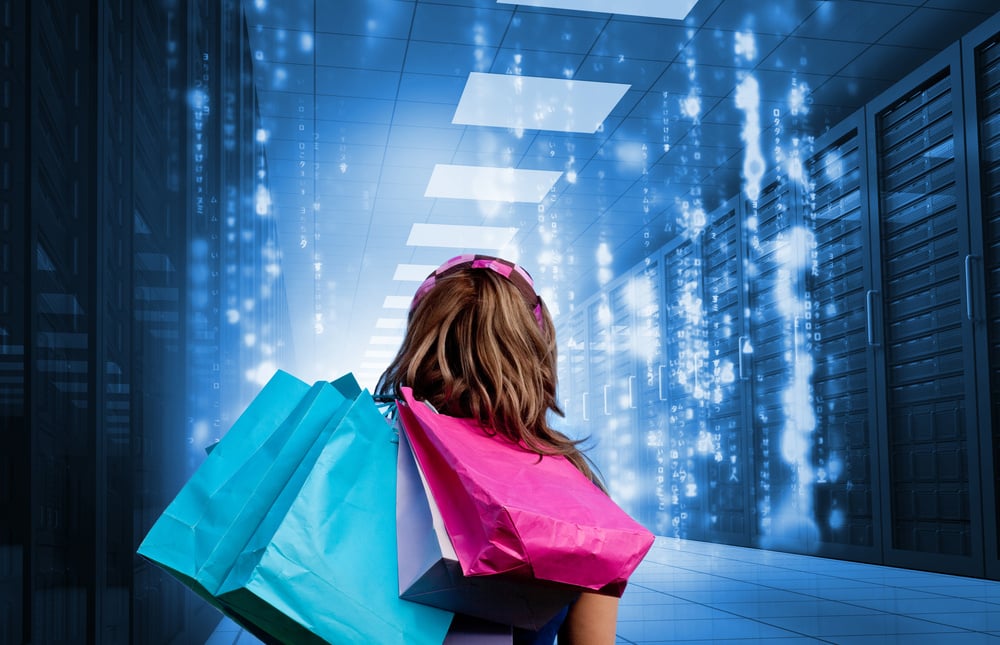
Experiential Shopping and the Role That Omnichannel Retail Solutions Play
As a man of the Millennial generation, I rarely visit brick-and-mortar retail stores. But there I was at a shoe store in New York City because Nike was letting me design a custom red shoe via its Nike by You retail program. I was making the shoe through Nike’s website, but I was getting ideas and visualizing how my creation would look through virtual reality technology at one of the company’s brick-and-mortar stores.
This is not the only example of experiential retail shopping today, but it is a good one. It also demonstrates the importance of omnichannel retail solutions that enable this type of retail experience.
The Importance of Omnichannel Retail Solutions for Experiential Shopping
Experiential retail shopping is something you’ve probably noticed before even if you don’t know the term.
With the rise of online shopping, the role of brick-and-mortar retail stores has changed. There still are times when most of us pop into a physical store to browse or grab something we need urgently, but just as often many of us visit a brick-and-mortar retail store for data before we make our actual purchase online. We use the brick-and-mortar store as a showroom, not as a sales floor.
This is where experiential retail comes in. The idea is that a brick-and-mortar retail outlet no longer is the best place to buy products, but it is the best place to experience a product or interact with it. So instead of orienting a brick-and-mortar retail store primarily as a sales channel, many retailers are embracing the reality and instead using their brick-and-mortar stores as a place to experience the product or interact with it. Retailers know that the actual sales often will come later via an online channel, just as my shoe purchase eventually came via the Nike website.
Where omnichannel retail solutions such as an enterprise resource planning solution (ERP) come into play is enabling a seamless customer transition among the various channels, and turning multiple channels into a single omnichannel that ultimately drives sales.
With omnichannel retail solutions such as ERP in place, retailers can collect data at any given touch point and integrate it into a unified picture of the customer’s behavior, motivations, and past interactions with the brand. This unified, omnichannel retail approach helps retailers understand consumers better as a whole, and it helps sell to them more specifically along a customer journey that often now includes more than a dozen touchpoints.
Retailers can of course take a scattershot approach and simply treat each sales channel as one potential point of sale. However, the advantage of omnichannel retail solutions is that retailers can build more sophisticated marketing and sales campaigns both in-store and online from an omnichannel strategy that uses the various touchpoints in concert.
The way Nike sold me on those red sneakers with the gorgeous sapphire accents and laces is but one example of omnichannel retail solutions in practice.
Where ERP Helps with Omnichannel Retail
The most sophisticated omnichannel retail strategies require an end-to-end backend solution that touches all parts of a retail business and houses all of the data related to the business. An omni-backend systems solution, if you will.
ERP is this single, unified backend system that makes omnichannel retail strategy possible. It connects brick-and-mortar retail locations with online marketplaces and direct-to-consumer channels such as social selling and a company’s online store. It connects a company’s manufacturing operation and logistics. It handles the supply chain, connects with the marketing of a company’s CRM, and customer support channels.
With ERP, retailers have the king of omnichannel retail solutions because it integrates everything so retailers can discover experiential retail opportunities, integrate sales channels, automate customized customer journeys, and tie it all back to the various parts of operations and logistics.
There also are other, more subtle reasons why ERP helps significantly with omnichannel retail sales. One of those reasons is privacy.
Customer data is the fuel that drives omnichannel retail. But as every business now knows, consumers care about how their data is used and stored. In some jurisdictions such as California or the European Union, consumers even have the right to be forgotten.
This is a challenge for the omnichannel retailer because protecting and managing this consumer data is complex. Less robust, unified backend systems fail in this environment. But not ERP, because ERP touches all corners of a business and is engineered for privacy and this level of customer data management at scale.
Another reason why ERP sits atop omnichannel retail solutions is because of its flexibility. Retail dynamics are in constant flux, both because of changing consumer patterns and also from technological disruption. Any retail strategy today might require modification or significant additions later.
Modern ERP solutions such as SAP S/4HANA Cloud Public Edition are built for this level of agility because they are modular, integrate with anything, and are designed for flexibility given the range of industries and business needs they serve. As the retail sales environment adjusts, retailers can adjust with it without needing a new backend foundation.
As someone who just bought his first pair of colored sneakers, I appreciate the value of software that has a flexible core and can change with the times.
Learn more about ERP for today’s retail environment here, or contact one of Navigator’s experienced ERP consultants for more information at (801) 642-0123 or by writing them at info@nbs-us.com

